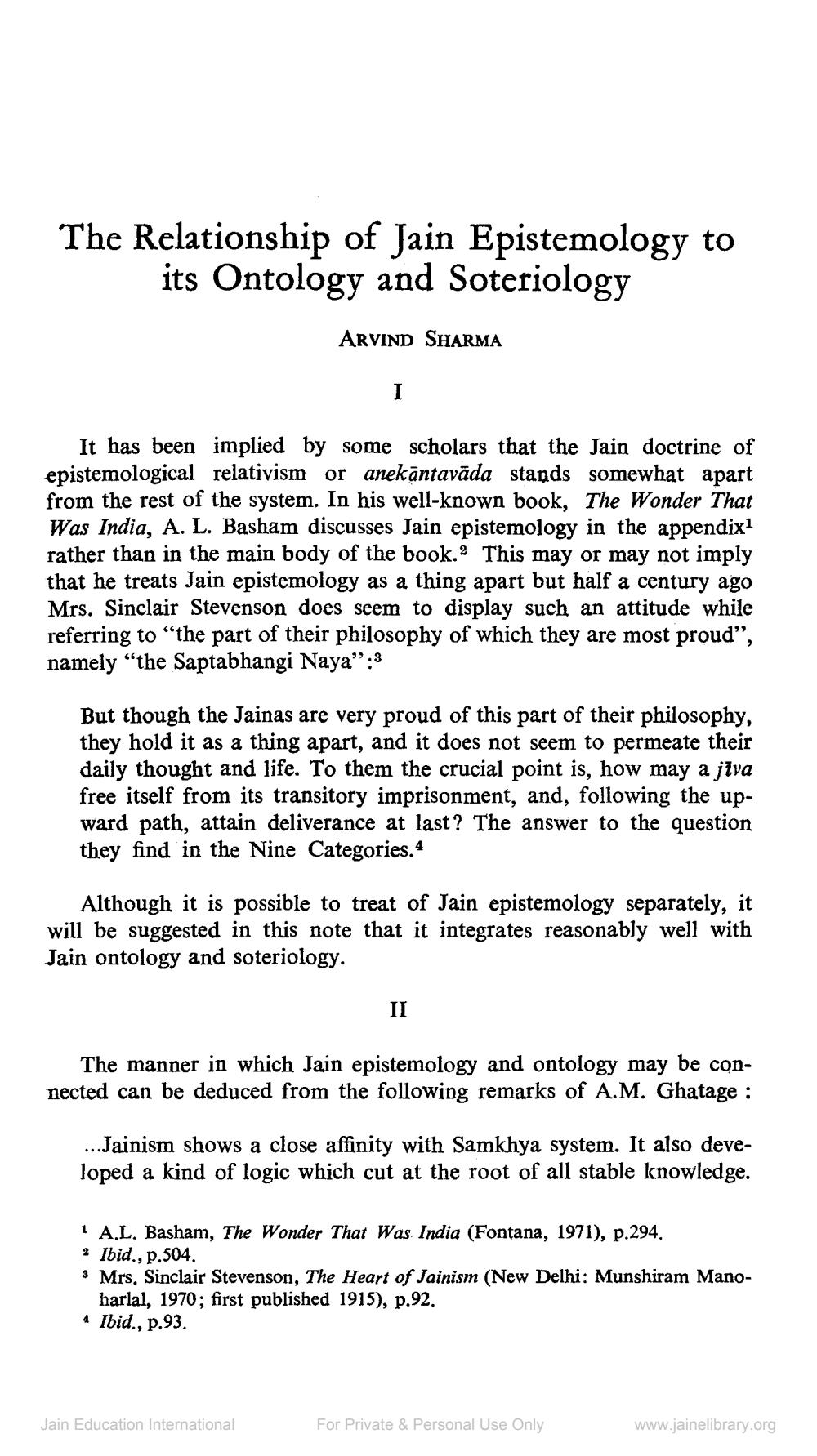________________
The Relationship of Jain Epistemology to its Ontology and Soteriology
ARVIND SHARMA
It has been implied by some scholars that the Jain doctrine of epistemological relativism or anekāntavāda stands somewhat apart from the rest of the system. In his well-known book, The Wonder That Was India, A. L. Basham discusses Jain epistemology in the appendix1 rather than in the main body of the book.” This may or may not imply that he treats Jain epistemology as a thing apart but half a century ago Mrs. Sinclair Stevenson does seem to display such an attitude while referring to "the part of their philosophy of which they are most proud”, namely “the Saptabhangi Naya”:3
But though the Jainas are very proud of this part of their philosophy, they hold it as a thing apart, and it does not seem to permeate their daily thought and life. To them the crucial point is, how may a jīva free itself from its transitory imprisonment, and, following the upward path, attain deliverance at last? The answer to the question they find in the Nine Categories. 4
Although it is possible to treat of Jain epistemology separately, it will be suggested in this note that it integrates reasonably well with Jain ontology and soteriology.
II
The manner in which Jain epistemology and ontology may be connected can be deduced from the following remarks of A.M. Ghatage :
...Jainism shows a close affinity with Samkhya system. It also developed a kind of logic which cut at the root of all stable knowledge.
1 A.L. Basham, The Wonder That Was India (Fontana, 1971), p.294, 2 Ibid., p.504. 3 Mrs. Sinclair Stevenson, The Heart of Jainism (New Delhi: Munshiram Mano
harlal, 1970; first published 1915), p.92. 4 Ibid., p.93.
Jain Education International
For Private & Personal Use Only
www.jainelibrary.org




